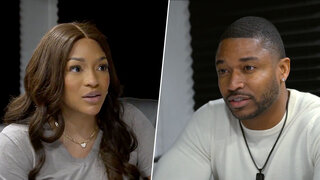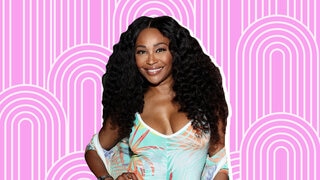A Therapist Explains How (And Why) Your Identity Changes After You Have a Baby
Say goodbye to the old you after having a child.

The Real Housewives of Potomac restaurateur Ashley Darby is expecting her first child with husband Michael Darby, Andy Cohen just welcomed son Benjamin through surrogate, Kenya Moore recently welcomed daughter Brooklyn, and Porsha Williams is "about to pop." Yep, there are several Bravolebs welcoming babies into the world. Mazel, as Andy says!
So we asked New York City-based life coach Laurie Davis Edwards (who is also a mom to a 21-month-old) exactly how a person changes after baby.
Here is what she said:
"Being a parent changes you as an individual. Your greatest teacher — your kid — has just entered your life. Your identity shifts as you learn so much more about who you are," Edwards explained.
She said many people even change careers, personal interests, and social circles after having a baby. "As so many relationships in your life change, it's only natural that your romantic relationship shifts, too."
Edwards noted what you prioritize in life shifts, and completely restructuring roles in life and at home is needed.
The crazy thing is, your brain actually changes, too.
One study by Nature Neuroscience reveals that new parents "undergo significant brain remodeling" that persists for at least two years after birth. The restructuring helps people bond with their child.
Yale University also completed a study of new moms and dads. “They used functional magnetic resonance imaging (fMRI)—a technique that tracks blood flow and related patterns of activity in the brain—to see which neural circuits became active when healthy parents saw and heard their babies. Prior studies had examined parents’ brains as they looked at photos of their babies, finding activity in brain areas associated with pleasure and positive mood. But when parents in the Yale study heard their babies cry, the researchers observed activity in neural networks closely associated with … social emotions such as empathy.”
Credit: Kenya Moore/Instagram







